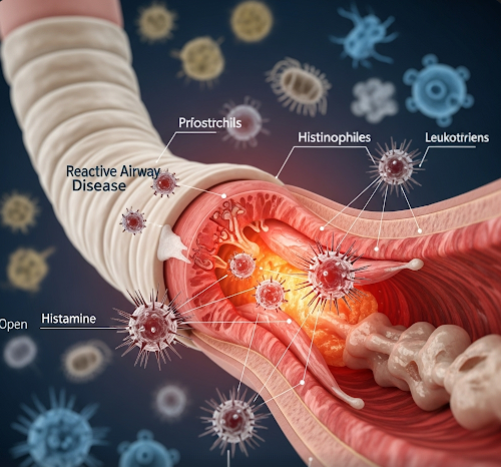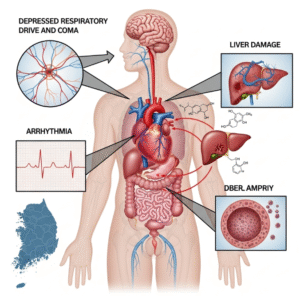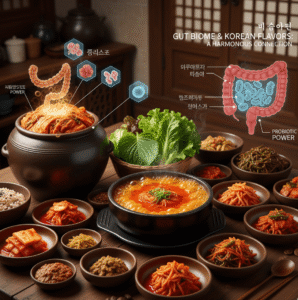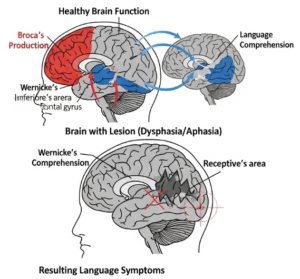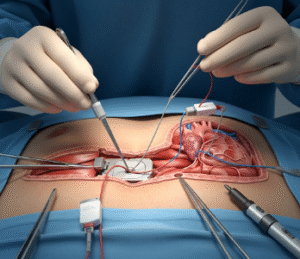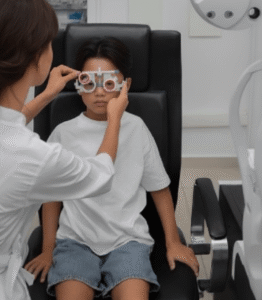Overview
Reactive Airway Disease (RAD) is a term used to describe temporary narrowing of the airways, causing symptoms similar to asthma such as wheezing, coughing, and shortness of breath. It is often diagnosed in young children when asthma diagnosis is uncertain. In Korea, pulmonologists provide comprehensive evaluation and management to control symptoms and prevent progression to chronic asthma.
What is Reactive Airway Disease?
Reactive Airway Disease refers to increased sensitivity and inflammation of the bronchial tubes that leads to reversible airway obstruction in response to various triggers such as infections, allergens, or irritants. The term is often used for young children presenting with wheezing but without a definitive asthma diagnosis.
Symptoms
- Wheezing
- Coughing, especially at night or with exercise
- Shortness of breath
- Chest tightness
- Episodes triggered by respiratory infections or allergens
Causes
- Viral respiratory infections (most common cause in children)
- Allergens such as dust mites, pollen, or pet dander
- Exposure to tobacco smoke or air pollution
- Cold air or exercise-induced airway sensitivity
Risk Factors
- Family history of asthma or allergies
- Early childhood respiratory infections
- Exposure to environmental pollutants or tobacco smoke
- Atopic conditions such as eczema or allergic rhinitis
Complications
- Progression to chronic asthma
- Recurrent respiratory infections
- Reduced lung function if untreated
Prevention
- Avoiding known triggers such as smoke and allergens
- Immunizations to prevent respiratory infections
- Maintaining good indoor air quality
- Early medical intervention for respiratory symptoms
Treatment Options in Korea
Diagnosis
Pulmonologists in Korea use clinical history, physical examination, and pulmonary function tests when feasible to differentiate RAD from asthma and other respiratory conditions.
Medical Treatments
- Bronchodilators (inhalers) to relieve airway constriction
- Corticosteroids to reduce airway inflammation
- Antihistamines or leukotriene modifiers for allergic components
- Supportive care for infections
Surgical or Advanced Therapies
- Rarely needed as RAD is usually managed medically
Rehabilitation and Support
- Respiratory therapy and breathing exercises
- Education for patients and caregivers on trigger avoidance and inhaler use
- Regular follow-up to monitor lung function and symptoms

